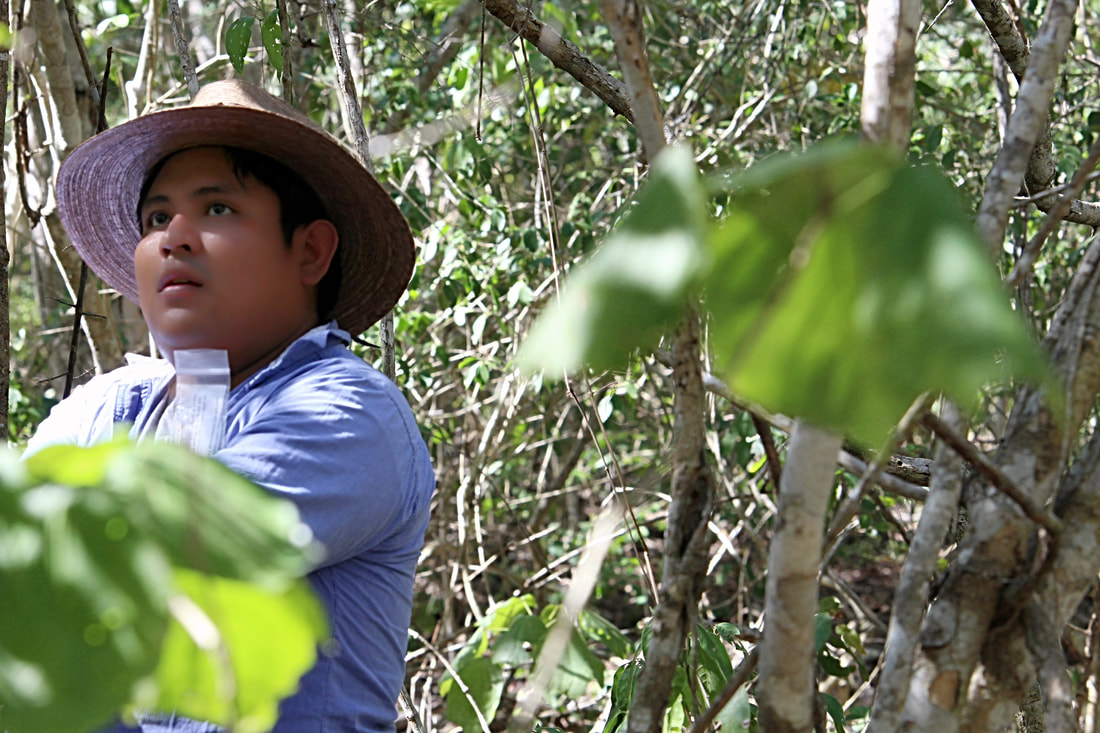For me, ecohydrology is the study of spatial and temporal patterns of hydrological and ecosystem processes, and how they couple and change with socio-environmental phenomena. It is a discipline that allows the study of different ecosystems using a suite of approaches and tools, ranging from field instrumentation to remote sensing. To my own experience, ecohydrology studies the vertical mass fluxes of the exchanges of two priority gases, water and CO2 (as well as the energy involved in these processes) in dry tropical ecosystems that have very little information about it.
What are your undergraduate and graduate degrees in?
I graduated from the Universidad Autonoma de Yucatan (UADY) as an Engineering Physics. I received my M.Sc. degree in Astrophysics at the Universidad de Guanajuato (UG) and my Ph.D. degree in Engineering from the Universidad Nacional Autonoma de Mexico (UNAM), with a dissertation entitled: “Spatial and temporal dynamics of water, carbon and energy fluxes at the surface-atmosphere interface in tropical systems. Yucatan Peninsula”.
How did you arrive at working in/thinking about ecohydrology?
It was a lucky and unconventional opportunity. After finishing my M.Sc. degree, I was undecided whether to continue with the Astrophysics line (almost completely desktop work) or to return to my origins as an Engineer (fieldwork, play with scientific instruments). There were various personal reasons and the projections of an uncertain future that made me more inclined to return to Engineering. Fortunately, exist an excellent engineering institute, very close to where I was born and grew up, whose lines of research focused on subjects that I was very passionate about: Earth Sciences, Marine Sciences, and Atmospheric Science. That is how I met one of my mentors, Dr. Hugo Gutierrez, who proposed to me an Ecohydrology topic: implement a monitoring site with an Eddy Covariance system, to study the temporal dynamics of a dry tropical ecosystem in Yucatán. The challenge, which meant for me a complete change of research area, as well as starting a project of which I had little background, made it become an exciting area with many opportunities. Sometime later another of my mentors, Dr. Bernardo Figueroa, joined this project, with whom I did much of the fieldwork that I like so much.
What do you see as an important emerging area of ecohydrology?
I think that the ecohydrology of coastal and tropical dry systems, especially in Mexico, is an area of great opportunity. Mainly because few sites have been studied from an ecohydrological perspective.
Do you have a favorite ecohydrology paper? Describe/explain.
I don't have a favorite paper, but I really enjoy reading the works of the ITSON ecohydrology group, those of Dr. Zulia Sanchez, Dr. Luis Mendez, Dr. Enrico Yepez, and his students. To mention one, the paper by Granados-Martínez et al., 2021, entitled "Environmental Controls on the Temporal Evolution of Energy and CO2 Fluxes on an Arid Mangrove of Northwestern Mexico", which shows the results of the first Eddy Covariance site in a mangrove from the Mexican Pacific, a feat that I had the joy of knowing personally.
Reference: Granados-Martínez, K. P., Yépez, E. A., Sánchez-Mejía, Z. M., Gutiérrez-Jurado, H. A., & Méndez-Barroso, L. A. (2021). Environmental controls on the temporal evolution of energy and CO2 fluxes on an arid mangrove of Northwestern Mexico. Journal of Geophysical Research: Biogeosciences, 126, e2020JG005932. https://doi.org/10.1029/2020JG005932
What do you do for fun (apart from ecohydrology)?
I enjoy watching TV series, going to the movies with my girlfriend, and drinking a good beer with friends (if it is handmade, better). In sports, I like football soccer, and squash. I love to travel and see new places.

 RSS Feed
RSS Feed